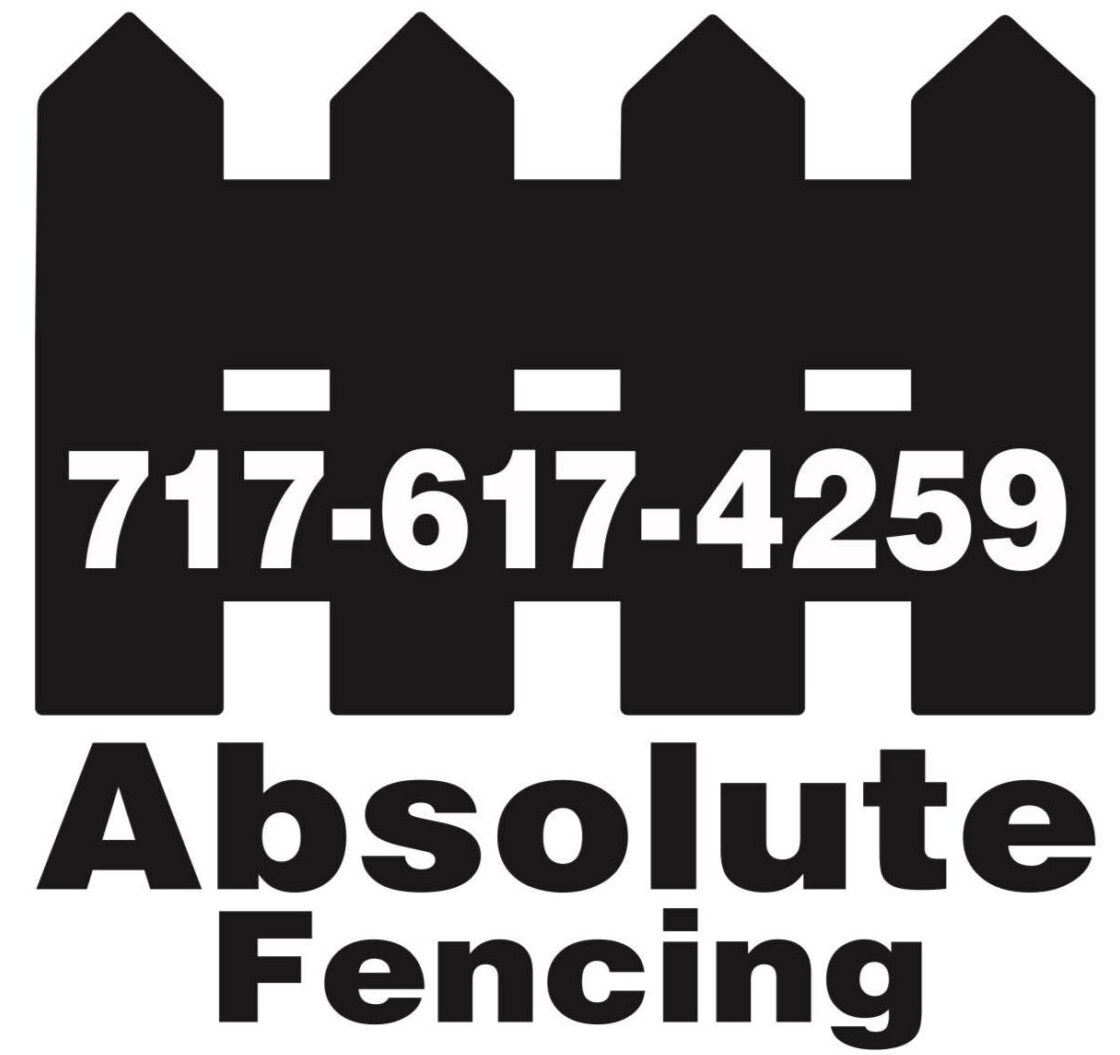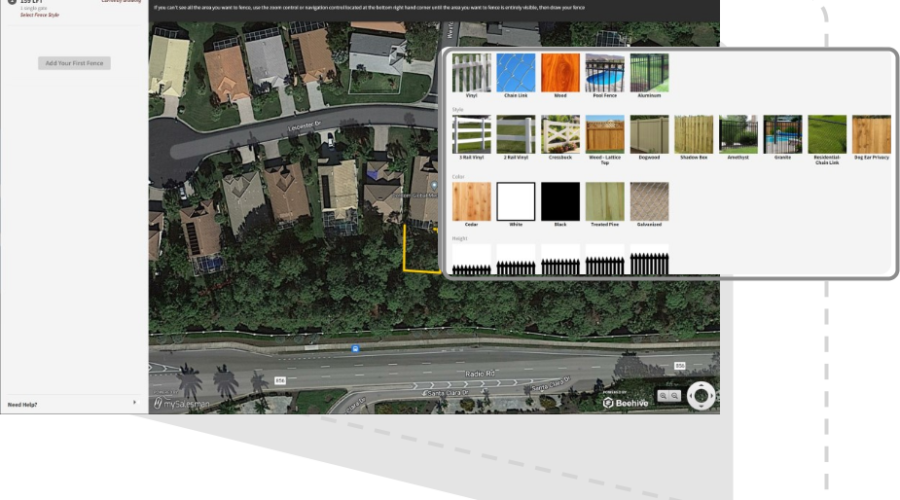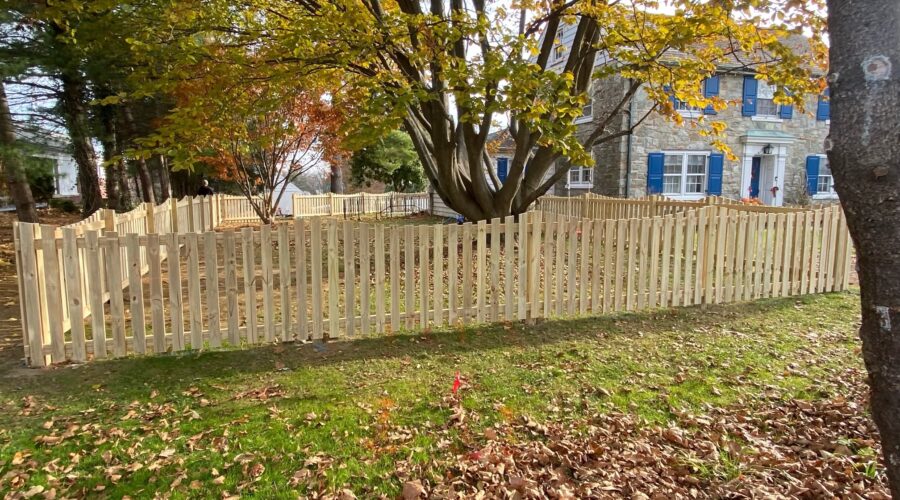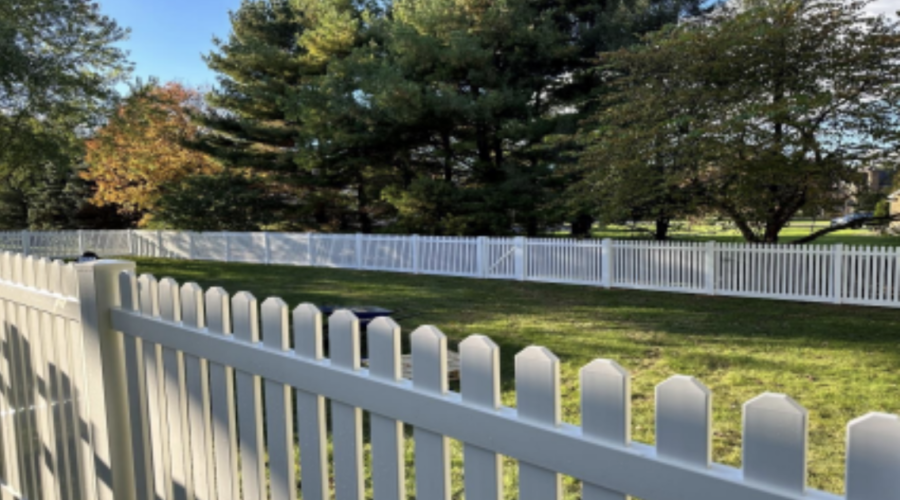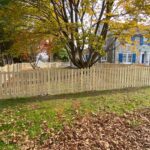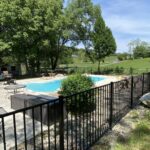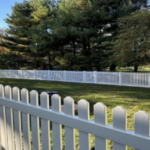Build Your Own Fence Quote in 5 Easy Steps!
Build Your Own Fence Quote!
Easily design your own fence and get a quote in just a few minutes.
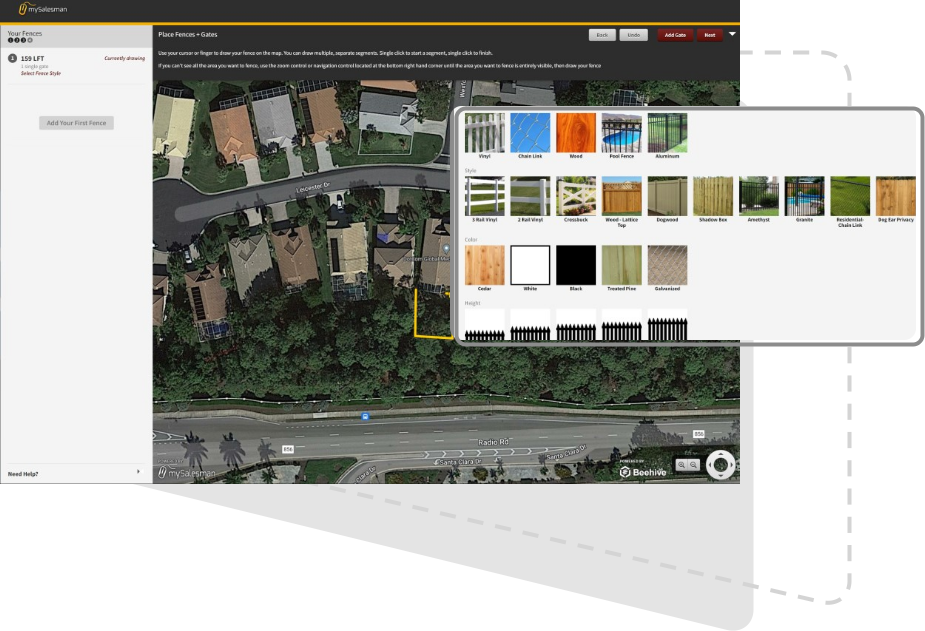
Are you ready to take the next step and get a quote for your fencing project? We’ve made it super easy for you.
We’ve laid out the process for you so you know just what to expect when using our fence quote software. It’s easy in just 5 steps…
1st: Click here to get started by entering your contact information and location. Providing your contact information allows us to reach out and further help you with your fence quote. We will then also set up a time to come out and discuss your project on site! Please enter your exact address. We serve these areas: Lancaster, York, Dauphin, Lebanon, Reading, Chester and Surrounding Areas.
2nd: Once you’ve found your house on the map, now comes the fun part! Select Build a Fence and find your property where you would like to place your fence. You can click and pull to center your property, and if on a smart device, you can pinch and zoom in to make your property larger.
You can then start by clicking the spot where you want your fence to start. Pull the mouse to lay out your fence, click each corner to complete your line and clicking the corner to start your next line. You can also add a grid over the map to make straight lines and laying out your fence a breeze. Now you can see approximately how long your fencing will be! We always come out and measure for final estimates, but this will give you a good idea without having to go out and measure yourself! Connect your lines and build out your fence.
3rd: After you have laid out all your fencing lines click next up top. Time to create a gate! Do you have a spot you need a gate, or two? Place a gate with the ‘Add a Gate’ button. You have the option for a single or double gate! Once you pick your selection, drag the gate to move it along the fence. Our easy to use fence builder helps you with each step and has tips along the way.
4th: Once you laid out your fence and gates, you can then hit next to make your fencing type selection. We offer aluminum, pool fencing, vinyl and wood fencing. From there it will give you fencing styles you can pick from depending on the type of material fencing you have selected. Depending on the type and style, we have color and height options to choose from.
5th: After you’ve made your final selection on all the customizing of your fence design, you can preview an estimated quote on the left side. You can edit your fence and also edit the type and style to view different quotes. When you’re happy with all your selections, you can click Finish at the top and it will send your final fence quote to us to review! You can save this page then for a reference, it also has our contact info if you need to reach out with further questions and concerns with your fence installation.
From here a member of our team will reach out to discuss your project and schedule an onsite appointment.
We can provide everything you need with our fence services to install your own fence, including gates, hardware and concrete, and deliver it all to your home or job site. Our experienced fence pros will also answer all your questions.
It’s that easy! What are you waiting for? Build your fence quote today!
8 Reasons You Should Install a Fence
The fence installed around your property, home, farm or even school is the first thing that people will see when they visit. You have to install a fence that stands out from the rest. The fence should also be maintenance- free. There are various types of fences on the market that Absolute Fences offers including wood, vinyl, farm, and more. Many often ask the question, Why install a fence?
A poorly chosen fence, such as a chain-link one, offers very little security and privacy to a home; hence, it is not advised for securing a property. Bamboo fences, on the other hand, shouldn’t be used in cold climates as they can quickly rot away. That being said, you need to think about the reasons for your need for the fence, even before the start of budgeting. You should first be asking yourself about the kind of property which you own. For instance, if you have a farm and thousands of acres of land, you would require installing a farm fence and not a wooden fence because it would be expensive to maintain such a large fence in the long run. If you want to learn more on financing, read here.
A fence can improve your home’s curb appeal, provide security, increase privacy, and offer protection from the elements. Here are our 8 reasons you should install a fence in your yard.
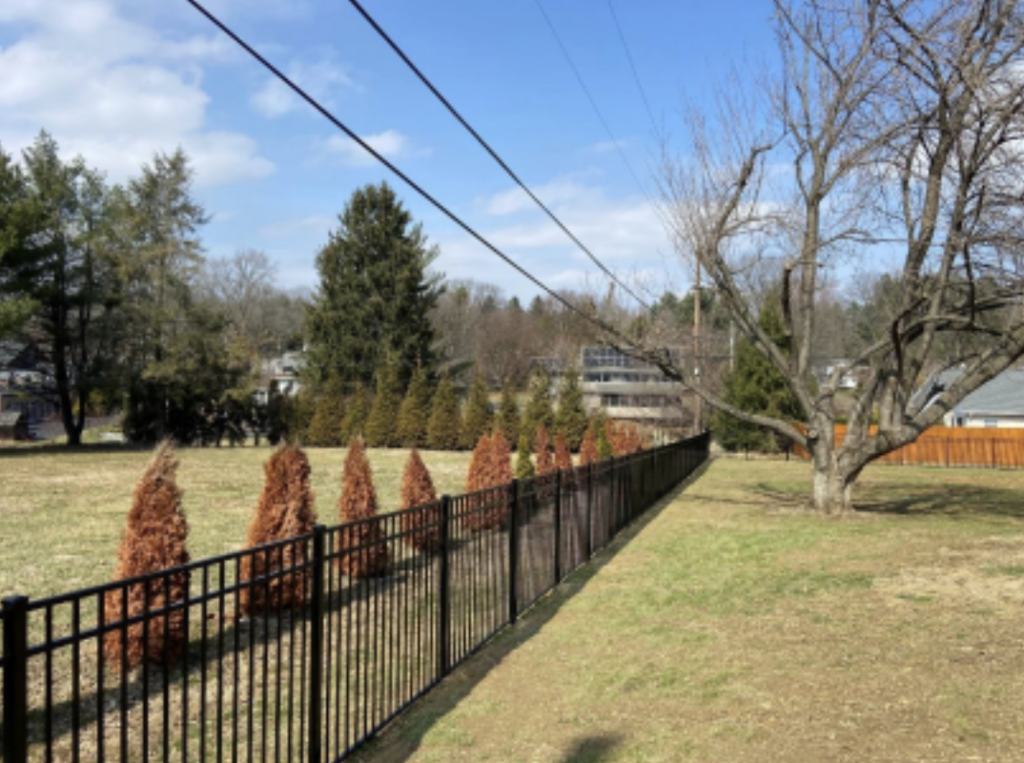
1. A Fence Can Increase Your Home Value
Real estate advisors have always debated whether a fence adds to your home value. On top of curb appeal, a fenced-in home is safer and more private than a home without a fence.
To increase your home value, you need to make sure you get a quality fence installed by quality people. We’ll make sure your fence will look good for years to come.
2. Give Your Dog Room to Run
It’s no secret that millennials are buying homes to give their dogs a better life. A privacy fence will keep your dog safe from road hazards and will prevent him from running away. You can let your dog run free knowing he’s safe in your fence.
3. Property Fencing Protects Your Privacy
What’s worse than nosy neighbors? Nosy neighbors who can see into your windows or walk straight into your yard because there’s no fence in the way. A privacy fence is there to give you a bit more seclusion in your home.
4. Quality Fencing Can Keep You Safe
Fence off your home to ensure the safety of your kids, younger siblings or pets, especially dogs. A fence will keep them confined to your compound, preventing them from wandering in your neighborhood and possibly leading to unfortunate incidents.
On top of keeping nosy neighbors out of your yard, a fence makes it harder for burglars to get into your space too.
5. Protect Your Landscaping
Are you in an area prone to harsh winds and sudden rain? Fencing in your landscaping can protect plants from brutal weather. The fence provides a bit of shelter.
6. Protect Your Backyard Parties from Unwanted Noise
Fencing in your property has the added benefit of acting as a noise barrier. If you have loud neighbors, a fence can provide a bit of relief against the onslaught of sound.
7. Define Your Space
A fence helps you define your space. You’ll never have to debate where your lawn care ends and your neighbor’s start. You’ll never have to deal with another neighbor’s dog coming in to do their business in your lawn.
In addition to the prevention of encroachment, installing a fence will also help you to know how much space is remaining on your property, so that you can plan accordingly if you have any renovations or additions in mind. You may wish to add a swing set or small pool for your kids, so knowing the size of your land will help you determine the size of the pool and the kind of swing set which you can get for your kids or younger siblings. Read about installing pool fencing here.
Marking your property using a fence will also help you determine where your maintenance activities begin and end, such as clearing the lawn, picking up dirt or gathering fallen leaves.
8. Decorative Purposes
Some fencing types add a decorative appeal to your property, as they have ornamental elements on them. Such types of fences will add an instant appeal to your house, thus increasing the value of your home. A good, high-quality fence is always a great investment. You will then end up reselling your property at higher costs, which will be more profitable for you. When choosing a fence, it’s advisable to pick a design that will match the look of your neighborhood. If you live in one of those neighborhoods or communities that have a defined type of fence, you are required to install, then you will have fewer choice
Property Fencing Can Improve Your Space
Adding property fencing around your home makes a more peaceful, safe space. It protects your yard from burglars, obnoxious weather, and nosy neighbors.
So if you want to upgrade your yard, it’s time to get a fence.
Ready to add a fence to your property? Contact us today for a free estimate and learn more about our fence installation services.
Installing Pool Fencing
Installing pool fencing in PA and Pool Fence Laws
It’s not a surprise that an in-ground pool-fence is a non-negotiable legal requirement enforced by Pennsylvania government. Pool fence laws called BOCA Pool Code are enforced for in-ground pools.
So, if you are unsure and wondering if you need a pool fence, the answer is yes. The only exception to the Pennsylvania pool fence law is if you have an above-ground pool with sides taller than 4 feet.
The Pennsylvania pool fence law is in place for good reason. Not only is it created to keep your family and friends safe, but also to make sure animals stay safe, too.
Here are a few of the low-maintenance, high-style fencing options that are sure to pass the Pennsylvania pool fence laws:
- Aluminum Pool Fence– Maintenance free style and modern, luxury living aluminum fencing is the upscale and beautiful way to protect your pool area.
- Vinyl Pool Fence– The classic white picket fence makes for a great backyard protector too! This requires slightly more maintenance than aluminum but is still a minimal time investment.
- Privacy Pool Fence– Whether it means vinyl, wood, or a hybrid of both materials, a privacy fence is a standard pool fence option.
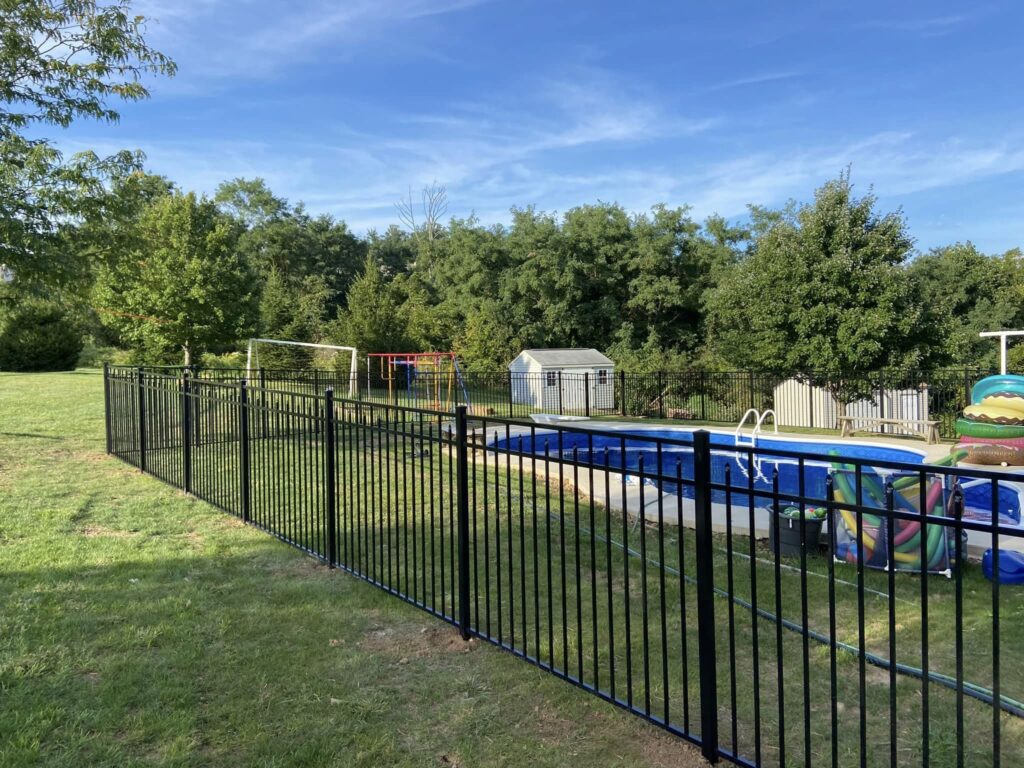
What are the steps to putting in a fence around your pool?
First, locate your property lines
- Check your county Recorder of Deeds to see if it has a survey on file for your property.
- If your government offices don’t have a survey, you will need to pay to have one done to make sure you are placing the fence on your property – not your neighbor’s!
Second, research local codes
- Do some online searching to find codes relevant to your residential property.
- Rules you are looking for include but are not limited to how far back your fence must be from the property line, and whether or not there’s a maximum height allowed.
- Don’t forget to check with your HOA!
- Who will own the fence? In Pennsylvania, a fence on the property line is shared between neighbors in PA in terms of cost of installation and maintenance or repair. It may mean you need to seek your neighbors’ approval of the type of fence you are installing – but it could also mean you can split the cost!
Third, get the proper permits
- Once you know the local building code, you will know if you need to get a permit to build a fence. A permit is usually required. We can help with that!
Pool fence requirements in Pennsylvania
Pool fences typically have the strictest requirements since they’re needed for safety. Here are a few requirements for Pennsylvania as a whole, although local laws usually go more in depth.
- Any body of water more than 24-inches deep is considered a pool and must meet required safety standards.
- All pools must be fenced on all sides with a structure at least 48-inches high.
- For above ground pools: The sides of the pool, if 48 inches, may be considered the fence. A removable or locking ladder is required, and it must be removed or locked when the pool is not in use.
- For in-ground pools: All fence gates must be self-closing and latching. A house may be used as the fourth side of the fence, but all doors leading to the pool area must have an audible warning device if no other gate or door is between the house and the pool. A power safety cover may also be used.
When Is the Best Time to Install a Pool Fence?
Do you install a fence first? Do you install the fence after the pool is done? The order of events in which you install your pool and its fence is particularly important if you’re not looking to spend unnecessary money during the build.
In most cases it makes the most sense to install the pool BEFORE installing the pool fence. This will make it easier for the pool construction team to build your pool without worrying about the fence and it being in the way! So, schedule your fence installation after the pool is complete. Plan ahead though! Please check with our lead times and schedule ahead.
General Fence Maintenance
General Fence Maintenance
While regular General Fence Maintenance maintenance won’t totally eliminate the need for repairs in the future, it’ll help to preserve the fence and maintain its longevity.
- Inspect your fence regularly.
- Paint or stain your fence as needed to protect it from the elements.
- Clean regularly with products and methods recommended by manufacturers.
- Be careful when using mowers and string trimmers around fences and posts.
- Avoid letting mulch or soil pile up against the bottom of fence posts and panels.
- Keep hinges, latches and any moving parts well lubricated with grease or oil.
- Mend a fence quickly if only a small portion is damaged. This will protect the structural integrity of the rest of the fence.
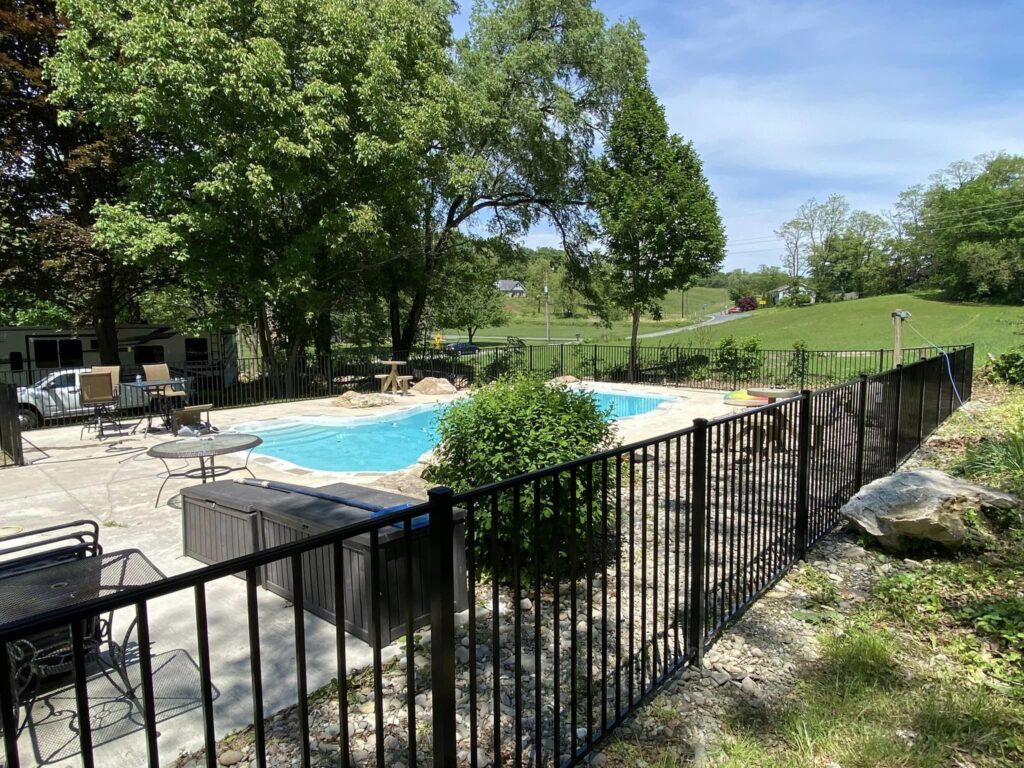
While every property owner has different methods of caring for fence structures, below are a few examples of areas you may want to focus on once you start your spring clean-up process.
1. Remove hanging tree limbs. Parts of trees may have broken under the weight of snow and ice and must be cared for before they fall and cause damage to the fence. This is more applicable for vinyl fencing, but damage can still occur to ornamental fencing depending on any weak spots present and the overall weight being placed on the structure. Be on the look out for any trees within falling distance of the fence and trim back any branches that may cause an issue in the future.
2. Prune surrounding greenery. Any shrubs or plants next to the fence should be groomed and trimmed to allow space for the greenery to grow correctly. The rails should also be cleared of any debris such as acorns, leaves, shells, and twigs as these can cause issues if not removed.
3. Conduct a thorough inspection. Be sure to physically survey the fence regardless of material one to two times a year to check for any potential problems such as areas of weakness, missing caps, broken or bent hardware, signs of rust, and chips, nicks, or scratches. Catching issues early will allow you to resolve them before your fence is damaged further, and the repair cost increases.
4. Wash and Condition. Your fence should be washed one to two times a year, along with applying any necessary conditioning treatments. A gentle cleanser with a soft cloth can be used to remove dust, bugs, and debris from the fence. For more stubborn spots, a soft brush may work more efficiently. A magic eraser can be useful for vinyl fences. Ornamental fences will need a gel-type car wash wax applied after cleaning to provide an added layer of protection against the sun’s UV rays and prevent fading.
5. Rust Maintenance. If working with an ornamental or metal fencing, watch for any rust spots and address any as soon as you find them to avoid any additional damage. Rust spots are an indicator that the bare metal layer of the fence has been exposed to air and moisture. The rust spots can usually be sanded off with sandpaper and need to be wiped down before being painted over.
6. Conduct repairs and schedule professional help. Identify broken pieces and damaged hardware on the fence. Any replacement pieces can be ordered, or compatible hardware can be utilized. Evaluating the situation and being proactive can help get your fence in good condition for the warmer months and minimize stress. Repair issues on your own, order replacement pieces so extras are on hand, and schedule any necessary help with Absolute Fencing.
Mildew Removal
The climates and weather conditions vary across the country, and mildew can be an issue for vinyl fencing. Initially, it will appear as black spots and can be found in areas where rain doesn’t fall. There are many different solutions, both manufactured and homemade, that can be used to minimize the presence of mildew. It’s encouraged to wear gloves and apply the solution you’ve selected carefully as some chemicals are hazardous to the environment and your skin.
Here are a few examples of homemade solutions:
1/3 cup detergent such as Tide
2/3 cup Trisodium Phosphate such as Soilax
1 quart 5% Sodium Hypochlorite such as Clorox
3 quarts water
or for something using fewer chemicals:
1/2 to 1 cup white vinegar
1 to 2 gallons of water
Now Hiring!
Absolute Fencing is now hiring for the upcoming season. Looking for dedicated, hard working individuals who are self motivated.
Full and part-time positions available!
Positions available :
- Crew leader ( experience a must )
- Laborers ( no experience needed )
- Lead installers( experience a must )
- Sub Contractors
Contact Us for more details and to apply!
